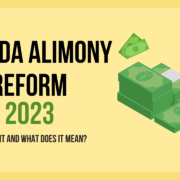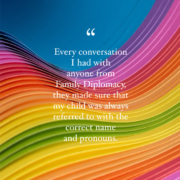INTRODUCTION ON FLORIDA ALIMONY REFORM 2023
Florida alimony reform is here. Our legislature passed, and the governor signed, a transformative overhaul to §61.08, Florida Statutes, commonly referred to as the Alimony Statute. As of July 1, 2023, Florida has virtually eliminated new awards of permanent alimony, codified temporary alimony, and implemented limits to the length and amount of alimony a court could order. The Alimony Statute now only refers to the following types of alimony (also known as spousal support or spousal maintenance): Temporary, Bridge-the-Gap, Rehabilitative, and Durational, each of which can be paid over time or in a lump sum. In this blog post, we explore each and highlight some of the recent significant changes.
Keep in mind that, though this is now the default law and limits what courts can order, spouses can always agree to do things differently through a private process such as Collaborative Divorce or mediation.
NEED AND ABILITY TO PAY
Before alimony can be awarded, a court must first determine whether one spouse has an actual financial need, and whether the other spouse has the ability to pay and meet that need. The burden is on the party requesting alimony to show both their need and the other party’s ability to pay. Though determining need and ability to pay may seem straight forward, the issue becomes a lot murkier when one of the spouses has inconsistent income because they are a small business owner, executive with a unique compensation package, or a seasonal worker.
Additionally, though seemingly obvious, many people seeking alimony do not realize that the household income that once supported one home may now have to stretch and support two, and there may or may not be sufficient funds to cover both. It is with this in mind that the new statute considers an additional factor in analyzing need and ability to pay: the anticipated financial needs and necessities of life for each party after the divorce is over.
LENGTH OF MARRIAGE
There are many factors a court may take into consideration when determining an alimony award. However, one of the major changes is how the court measures the length of the marriage. Now, the Alimony Statute defines a short-term marriage as one that last less than 10 years, a moderate length marriage as 10 to 20 years, and a long-term marriage as exceeding 20 years. Traditionally, the length of marriage is measured from the date of marriage until the date of filing for divorce or another date as agreed upon by the spouses. In a Collaborative Process, where many cases do not get filed until after a full resolution is reached, we tend to use a date listed in a Collaborative Participation Agreement in place of the date of filing.
Read more →










